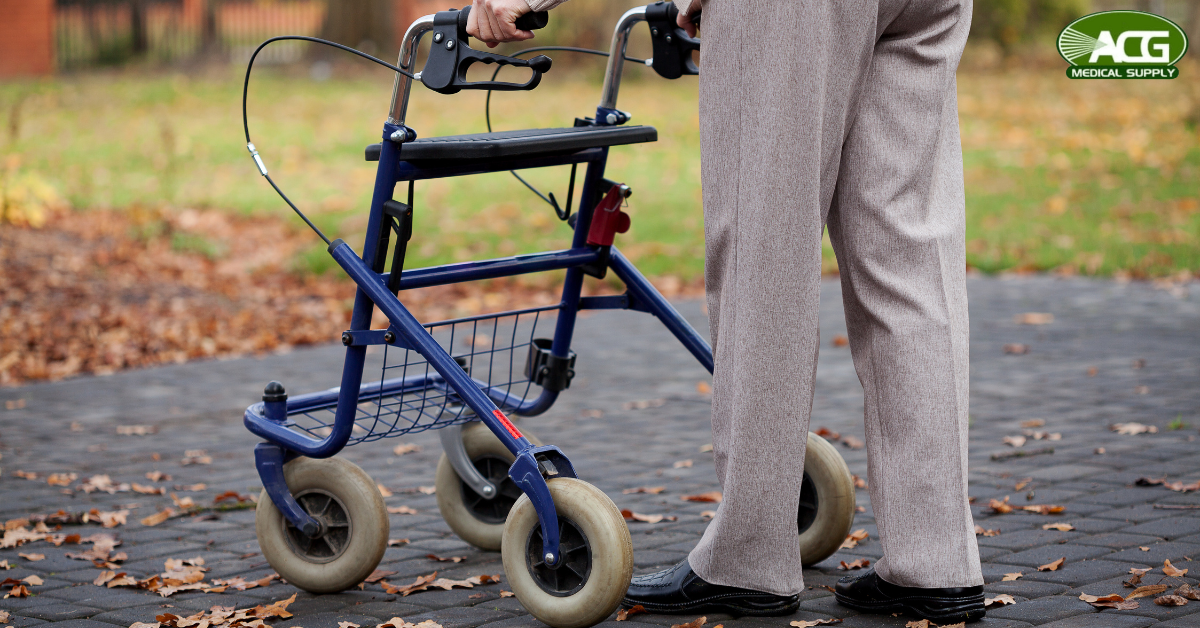Mobility really is freedom. For so many older adults, that freedom doesn’t come from something fancy; it’s often just a simple walker or rollator. These sturdy aids carry a lot of responsibility, giving seniors the confidence to stay independent. But here’s the part that slips under the radar for a lot of families: even the toughest mobility aid isn’t built to run forever without care. They need a little routine attention if they’re going to stay safe and reliable.
Why routine safety checks matter
The truth is, walkers and rollators take a beating. They go over curbs, bump down cluttered hallways, and sometimes get dragged across damp sidewalks. Bit by bit, certain elements of the walker or rollator start to wear down. For example, wheels lose their smooth roll, bolts get a little loose, and brakes don’t feel as sharp. And you don’t need a big failure for trouble—sometimes it’s just one wobbly wheel, and suddenly that quick walk to the kitchen turns into a scary slip or even a fall. If you catch those little issues early, before a wheel sticks or a cable gives out, you can avoid a lot of that risk.
And here’s the best news for North Texans: Visit ACG Medical Supply—any one of its three showrooms in Plano, Rowlett, or Bedford—and you’ll get free safety checks on walkers and rollators, mobility scooters (mobility devices) by certified technicians. That’s a zero-cost safety net.
How a pro checks your walker or rollator
A thorough inspection takes less than ten minutes and targets the five parts most likely to fail:
| Checkpoint | What the tech looks for | Why it matters |
| Wheels & tires | Flat spots, wobble, debris | Smooth rolling prevents stumbles |
| Brakes & cables | Pad wear, cable tension | Reliable stops on inclines |
| Frame & joints | Cracks, bent tubing | Structural strength |
| Handles & grips | Looseness, torn rubber | Steady handhold and posture |
| Seat & basket (rollators) | Tears, loose bolts | Safe resting spot & storage |
Technicians tighten hardware, adjust brake tension, and recommend replacements when parts are past their prime. Many fixes happen on the spot.
Quick DIY checklist between pro visits
Seniors and caregivers can keep problems from snowballing with a once-a-week glance:
- Wipe the frame with mild soap and water—grit shortens the life of moving parts.
- Spin each wheel; it should turn freely and silently.
- Squeeze the brake levers. They should lock the wheels without pulling to one side.
- Check rubber tips or tires for cracks.
- Make sure handles sit at wrist height when the user stands tall—no hunching.
If anything feels off, book the showroom for help or search for ‘free walker safety check near me’ to find community clinics. Simple steps like these mean seniors can use their aid with confidence instead of hesitation.
Senior mobility aid maintenance guide—How often?
- Daily: Quick visual once-over before leaving home.
- Weekly: Full DIY checklist above.
- Every 3–6 months: Professional tune-up (or sooner after a fall or trip).
- Immediately: After exposure to rain or extreme heat, dry it and check the brakes.
Spot-on brake care
Rollator stoppers are lifesavers on ramps. Keep them crisp with these rollator brake inspection tips:
- Test on a gentle slope. Levers should halt motion without max hand strength.
- Inspect cables for frays. Replace if any wire strands show.
- Lightly lubricate pivot points, never the pads.
- If wheels still creep, a tech at ACG Medical can adjust tension in minutes.
Conclusion
A walker or rollator is tough, and they are built to last, but like anything that’s used every day, they also need a little care. A quick look over at home—or even better, a check by a professional, can be the difference between something that’s perfectly safe to use and something that could put someone at risk.
Thanks to ACG Medical Supply, seniors in North Texas can get free safety checks on walkers and rollators at any of the three showroom locations. That small step means fewer falls, greater confidence, and the kind of independence that every senior deserves.
Because when mobility is safe, freedom follows.
FAQs:
How often should I book a professional safety check?
Every six months – or sooner if you hear grinding, feel a wobble, or notice brake slippage.
Can I adjust rollator brakes myself?
Yes, minor tweaks are doable, but over-tightening can ruin cables. If in doubt, let a tech handle it, ACG’s checks are free.
What’s the lifespan of a walker?
Walker frames can last for years, but tips, wheels, and grips often need swapping annually, depending on mileage and terrain.
Does insurance cover maintenance?
Health plans rarely pay for upkeep, but the no-cost service at ACG removes that hurdle entirely.
Do safety checks include scooters?
Absolutely. ACG’s teams also look over batteries, tires, and throttles on mobility scooters during the same visit.

